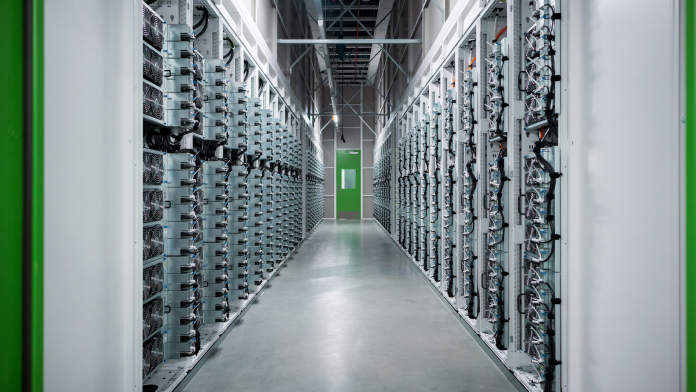As data centers continue to expand in size and complexity, their energy consumption and heat output have become significant challenges. Traditional cooling and power solutions struggle to keep pace with the increasing demand for efficiency and sustainability. One emerging solution is hydrogen plasma for data centers, a cutting-edge technology that offers substantial benefits in reducing heat generation and power usage. This article explores how hydrogen plasma technology is transforming data center operations, enhancing energy efficiency, and contributing to a greener future.
The Growing Energy Challenge in Data Centers
Data centers are the backbone of modern digital infrastructure, supporting everything from cloud computing to artificial intelligence. However, they are also among the most energy-intensive facilities, consuming vast amounts of electricity to power servers and maintain optimal operating temperatures. Key challenges include:
- High Power Demand: Data centers require enormous amounts of electricity, contributing to high operational costs and environmental concerns.
- Heat Dissipation Issues: The heat generated by server racks and networking equipment necessitates advanced cooling systems, which further increase energy consumption.
- Sustainability Concerns: Many data centers rely on fossil fuels for power, leading to significant carbon emissions and environmental impact.
What Is Hydrogen Plasma Technology?
Hydrogen plasma is a state of matter where hydrogen gas is ionized, creating a highly energetic plasma that can be used for various applications, including energy-efficient cooling and power solutions. In hydrogen plasma for data centers, this technology is leveraged to improve heat management and reduce electricity consumption.
The key properties of hydrogen plasma that make it ideal for data centers include:
- High Thermal Conductivity: Hydrogen plasma can efficiently absorb and dissipate heat, reducing the reliance on traditional cooling systems.
- Energy Efficiency: The process of generating and utilizing hydrogen plasma consumes less energy than conventional air conditioning or liquid cooling methods.
- Sustainability: Hydrogen is an abundant and clean energy source, making hydrogen plasma technology a more environmentally friendly alternative.
How Hydrogen Plasma Reduces Heat in Data Centers
Effective heat management is crucial for maintaining the performance and longevity of data center equipment. Traditional cooling methods, such as air conditioning and liquid cooling, consume vast amounts of power. Hydrogen plasma for data centers offers a revolutionary approach by:
- Enhancing Heat Dissipation: Hydrogen plasma efficiently absorbs excess heat from server racks, preventing thermal buildup and reducing the risk of overheating.
- Reducing Cooling System Load: With hydrogen plasma managing a significant portion of heat dissipation, traditional cooling systems operate at lower capacities, resulting in energy savings.
- Maintaining Optimal Temperatures: By ensuring a stable and controlled temperature environment, hydrogen plasma helps improve server efficiency and reliability.
Lowering Power Consumption with Hydrogen Plasma
Beyond heat reduction, hydrogen plasma for data centers plays a crucial role in optimizing energy usage. Data centers are constantly seeking ways to lower their power consumption without compromising performance. Hydrogen plasma contributes to this goal by:
- Minimizing Cooling Energy Costs: Since hydrogen plasma technology reduces the dependency on conventional cooling methods, data centers can significantly cut their energy expenses.
- Enhancing Power Efficiency: The efficient energy transfer properties of hydrogen plasma allow for lower power consumption in critical systems.
- Reducing Carbon Footprint: By decreasing overall power requirements, hydrogen plasma helps data centers transition toward more sustainable and eco-friendly operations.
The Future of Hydrogen Plasma in Data Centers
As the demand for data processing continues to grow, adopting hydrogen plasma for data centers is becoming an increasingly attractive solution. The technology aligns with the industry’s push toward sustainable and energy-efficient infrastructure. Future advancements may include:
- Integration with Renewable Energy: Hydrogen plasma technology can be combined with renewable energy sources, such as solar and wind, for a fully sustainable data center model.
- Scalability for Large Facilities: As hydrogen plasma solutions become more refined, they will be more accessible for large-scale data center deployments.
- Innovation in Plasma Cooling Systems: Continuous research and development will lead to even more efficient hydrogen plasma-based cooling technologies, further enhancing energy savings.
Conclusion
The use of hydrogen plasma for data centers represents a groundbreaking shift in the way data facilities manage heat and power consumption. By leveraging the unique properties of hydrogen plasma, data centers can significantly reduce energy use, enhance cooling efficiency, and contribute to a more sustainable digital future. As technology advances, hydrogen plasma is poised to become a key player in the evolution of data center infrastructure, offering a solution that is both innovative and environmentally responsible.



